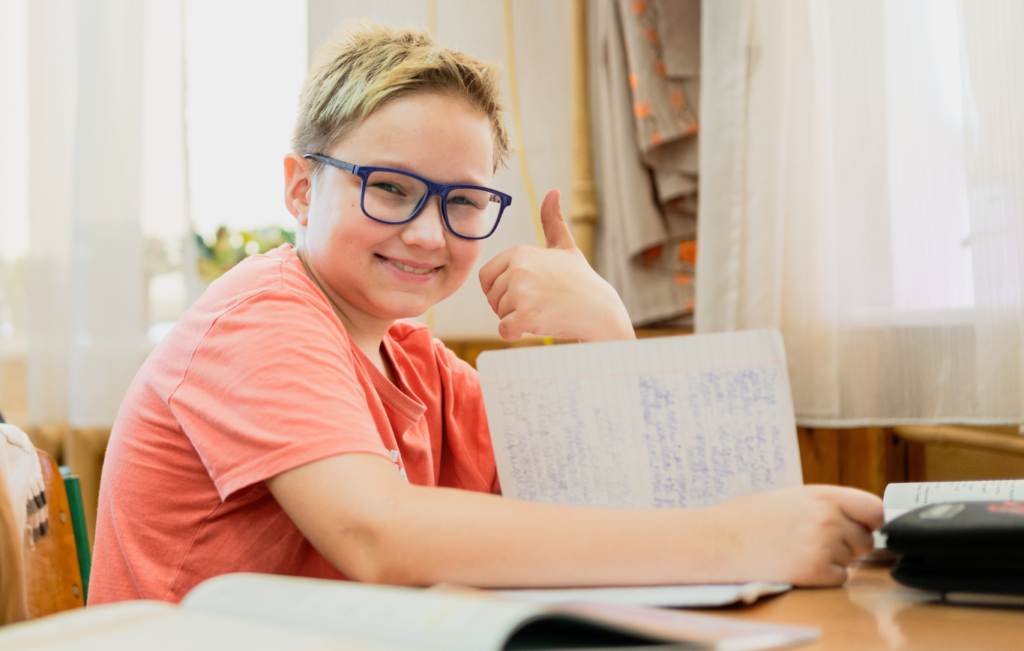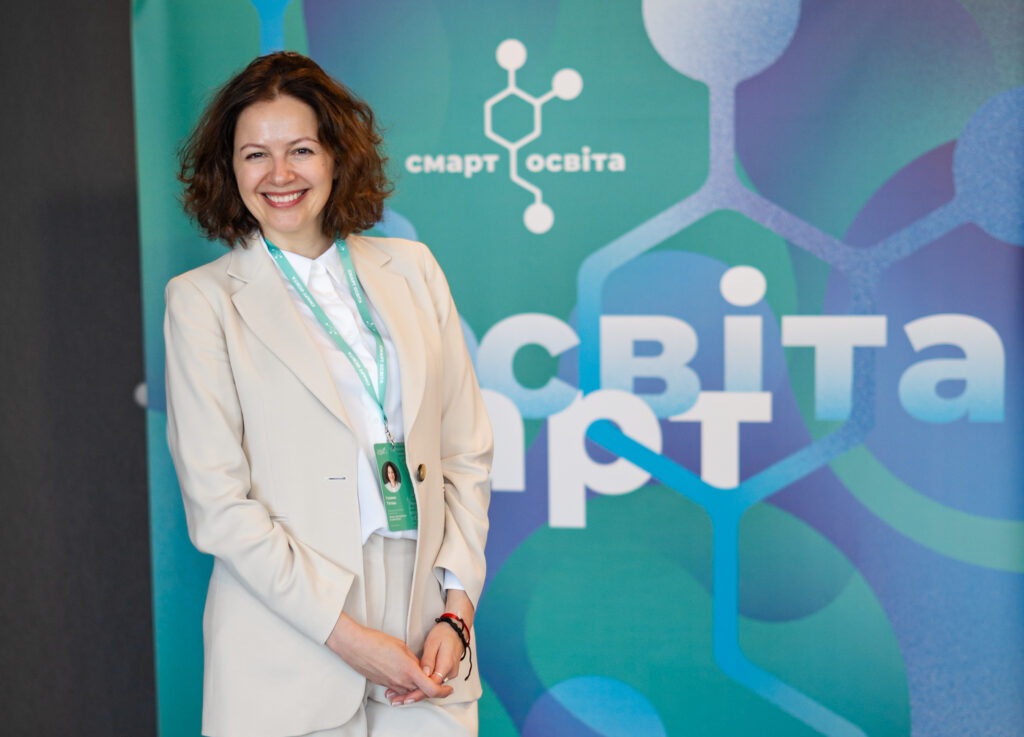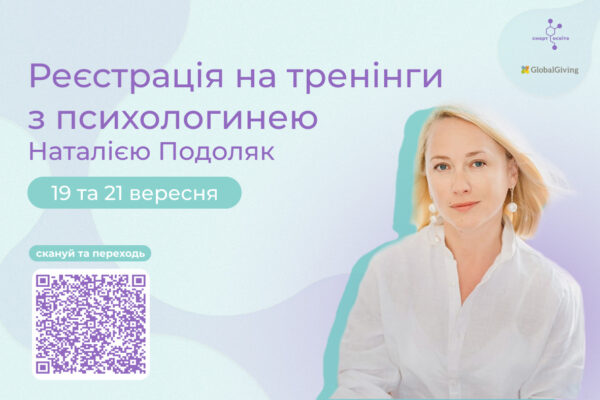

The project “Stay with Ukraine” was launched for students aged 8-10 years at the beginning of September. 136 Ukrainian children took part in this training. These children, as well as 10 teachers, are currently living in Europe, the US, Canada, and the UAE. The objective of the training programme is to teach Ukrainian as a mother tongue and as a second language.
For those children who did not attend primary school in Ukraine or attended it for a limited period, this project will give them an opportunity to learn Ukrainian despite temporarily living in a different linguistic environment. The training does not aim to repeat the Ukrainian primary school curriculum but is meant to create conditions for learning Ukrainian as a second language.
“Last year in September I posted a story about the start of “Stay with Ukraine” for 5-11 grades. Back then several people texted me about doing something similar also for primary school. These children had already started going to international schools and they can read and write in English, or German, or Polish, or other languages, but they may not be able to do this in Ukrainian. The children may not have had experience going to a Ukrainian school, while their family might speak Russian. Back then I promised that we will think about “Stay with Ukraine“ for primary school,” says the head of “Smart Osvita”, Halyna Tytysh.

Yet, according to Halyna Tytysh, this is a really difficult task, as it requires the parents’ involvement. Studying is both live and online, and this is quite a challenge for primary school.
“We decided to start with 3rd and 4th grades for two reasons. First, these children are a bit older and more independent that 1st and 2nd graders. Second, if they had not been covered by the Ukrainian education, they already have significant losses. That’s why this year we decided to pilot 3rd and 4th graders in order to scale up this project in future. We also hope to launch “Stay with Ukraine” for 1st and 2nd graders. Actually, we are prepared for this, it’s just a question of resources to open additional groups,” says Halyna Tytysh.
10 teachers were selected from 148 applications to work in the project. They are really motivated people with experience in educational support of the children abroad, who understand their educational needs, are ready to master new technologies, so that the Ukrainian language would be among the functional languages that these children use in situations of forced poly-lingualism.
In this training process the pedagogues are using methods and guidelines developed by the authors: Halyna Nikishyna, Andriy Panchenkov and Iryna Starahina.
For these recommendations the pedagogues had to consider several important factors, including the differing levels of language acquisition.
“Some children had been going to a Ukrainian school in person, others had had no such experience, because they had been going remotely, or had been home schooled. Some children occasionally had Ukrainian classes at Sunday schools. That is why the level of subject competencies varies for these children. So, children are grouped not according to their age, but according to how they have mastered the language. In one group we may have both eight- and ten-year-olds, who in peaceful times would have been in the 3rd and the 5th grade respectively,” says Halyna Nikishyna, the pedagogue.
Halyna adds that the linguistic environment of the children also plays its role. Some students are brought up in Ukrainian-speaking families, others in Romanian or Polish or Russian-speaking families. Sometimes the bilingualism in the family (parents speak both Russian and Ukrainian) is complemented with Polish in the streets or English in schools.
“During the organization of Ukrainian classes within our project we need to consider the language of the country where the children are staying. This will help the children to be aware of the characteristics of the Ukrainian language,” says Halyna Nikishyna.
Halyna Nikishyna says that families abroad watch media content in the language of the country where they are staying in order to more quickly integrate in the respective society. Unfortunately, Ukrainian is becoming less relevant at this period:
“Ukrainian classes within “Staying with Ukraine” course must implement a communicative approach, that is learning the language in the process of live communication, learning words and structures needed in real-life communication, being in situations of language interaction, when the material that is being taught is immediately applied. We have to let the children immerse in our Ukrainian culture,” says Halyna and adds that Ukrainian must become the language of learning about the world for the children”.
Halyna Nikishyna says that pedagogical kits cover the following topics: “My friends”, “My feelings”, “My games”, “My opportunities”, “Happy picnic”, “Interesting movie”, “Timely support”, “Winter miracles”, “Useful things”, “Smart clothes” etc.
“We intended to create conditions to shape different competencies for the children, namely those of social and civic, digital, environmental literacy and healthy life-style, awareness and self-expression in culture, skills of life-long learning, key competencies in natural sciences and technology,” says Halyna Nikishyna.
The children are also mastering the language in situations of polymodality when different senses are involved: vision, hearing and motor skills. The pedagogues will use illustrations, videos, games, puppet performances, graphic exercises.
The project does not have ranking or scoring: the pedagogue must create the right micro-climate in the group, so that every child could track their educational progress.
“The teacher must keep an eye on every component of the lesson not only in terms of which exercise to offer to the children, but also to motivate the students to do this task, which criteria they use to assess this task, which format to choose for assessment (self-assessment, peer assessment, assessment by the teacher),” says Halyna.
Homework in the project is not obligatory. The teacher has sufficient academic freedom and himself or herself determines whether they could recommend some exercise for individual work.”Smart Osvita” created the project “Staying with Ukraine” back in 2022 for 5th-11th graders who were forced to stay abroad and were going to local schools and did not have an opportunity to study Ukrainian subjects. The participants studied the Ukrainian Language and Literature, History of Ukraine within the curriculum of the respective grade. This gave them an opportunity to stay in touch with the country, to be in a Ukrainian community, to study with Ukrainian teachers and to learn the subjects according to the approved Ukrainian study programme. Overall, for two years more than 3000 children participated in the project, and they sent us a lot of positive feedback and requests to design the project also for primary school children.
The project is implemented by “Smart Osvita” with the support of Theirworld.



